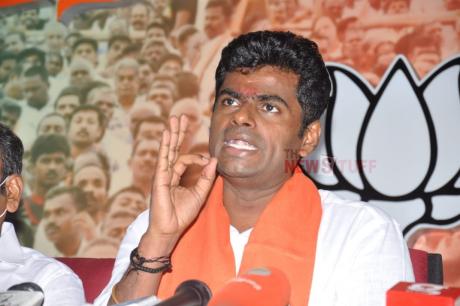Twitter, Meta, Microsoft, and Google -- this is the line up of top global blue chip companies in the technological landscape in history that carried out historical job cuts in recent times. In a trend that is getting from bad to worse, the back-to-back global layoffs have put the employment opportunities of thousands of people at stake with already some thousands of employees are being sent home with an uncertain future.
The above list of companies is among the dozens in the wishlists of tech aspirants who are aiming to land in the dream job in their dream company. But, what if the timeline of their job is less than the timeline of their dream and what if they are told to drop their resignations suddenly? Sadly, this has become a fashion globally in the IT ecosystem and with large-scale layoffs, it is perhaps becoming a trend that will exist for more months.
In November 2022, Twitter and Meta carried out historical job cuts. While Elon Musk's Twitter had witnessed the downfall of nearly half of its workforce, Meta's Mark Zuckerberg announced the job cut of 11,000 workers from across its businesses including Facebook, WhatsApp, and Instagram. Morever, Zuckerberg announced that the company is enforcing a hiring freeze in 2023. On January 18, Microsoft announced that the company will layoff 10,000 jobs within this March and two days later, Google's CEO Sundar Pichai said that his firm will layoff 12,000 jobs globally, which has become the largest layoff in Google's 25-year history.
What's the reason behind these massive job cuts? The companies cite rising inflation and global economic recession as an one-liner behind such historical layoffs. India is a country with bustling technological activities, round the clock, and the IT giants have a vital share in the country's employment. India's famous IT hubs like Pune, Bengaluru, Chennai, and Hyderabad employ thousands each year and owing to the globaly layoffs, the hiring trend is taking an upsetting turn. So, what's happening? what's the reason behind the layoffs? Whether an investment in AI (Artificial Intelligence) play a role? and how the government in India is reacting?
With all these key questions, TheNewStuff has spoken with Alagunambi Welkin, the General Secretary of Union of IT and ITES Employees (UNITE) in Chennai. He said, "While layoff would be the temporary concept as per the Indian law, what we are facing is retrenchment, which is a permanent job cut without any time period." As the companies like Google stated that the job cuts would be done based on each country's labour practices, Welkin said, "As per the Indian law, if a company carries out a retrenchment, it has to acquire prior approval from the government, the employees must be served with a notice one month before and the employees must be provided with compensation along with PF, graduity, and notice period salary."
"There is a provision in the law that the company should recruit these retrenched employees again if in need of man power", Welkin adds. He says, "Though there is an act, retrenchments are happening illegally in India as the companies aren't adhering to the provisions. In last two months, there have been many such illegal retrenchments. What we can understand from the announcements of Twitter, Google, and Microsoft is that these are product based companies and major investments done by these companies during the pandemic were caught in an impasse."
"These companies have done major investments in emerging technologies like Artificial Intelligence, Machine Learning, AR (Augmented Reality), VR (Virtual Reality), and blockchain technology. During the time of pandemic when the work-from-home was rampant and when most of the services are disrupted, these companies believed that most of the people will shift towards emerging technologies. However, as the normalcy came back in some years and as the employees returned to office, these technologies have faced a massive blow. And the investments made by these companies in emerging technologies fail and didn't give the expected result, the companies decided to reduce the employees they recruited humongoulsy during the pandemic", Welkin further adds.
He continues, "For example, the IT companies in India would recruit 20,000 to 30,000 employees in an average in every year, but during the period of Covid pandemic, the recruitment scale went up to 2,00,000 every year, it was a multifold. Now, these companies are carrying out disorganized job cuts. They recruited in a competition to dominate the market of emerging technologies and since the competition failed, they are now sending the employees home."
In a memo issued by Google CEO Sundar Pichai has said about the huge opportunity in Google's early investments in AI. When we asked Welkin about whether the investment in AI has played a major role in these massive job cuts, he said, "Twitter, Microsoft, and Google didn't cut the jobs due to successful technology development. If these companies would rightly handle the Artifical Intelligence, there would be more job creations. The jobs will evolve. Ten years before, the ratio was like 10% of technology and 90% of human. In the wake of emerging technologies, this ratio has been changed. It's like almost 50-50."
"So, Artificial Intelligence is yet to attain a stage where it would complete surpass human and it's in early stage. It can't think intelligently like how human can think. So, based on that its 50% technology and 50% human. The change of ratio has created an impact in the employment. If I am fresher coming out of a college, I can easily adapt to this. But, if people work in a company for 15 to 20 years, they would have majorly worked in 90-10 ratio and when the situation suddenly comes to 50-50, they can't adapt to this. So, that's the problem here and since these companies fail in capturing the market through AI, they are removing the manpower. It's not AI's success", he divulged.
When asked about how many Indian employees, including the front and back end, would get affected due to these massive job cuts, Welkin says, "As far as Google is concerned, we have to wait and see the impact as they have said that they will remove jobs based on the local labour laws. If it has to be done as per law, the company will raise a formal request during which the exact number of people losing jobs will come to light. However, in India, the companies won't take these formal laws in hand. If Google is firing thousands of employees in India, it has to give them compensations."
He further says, "Firing someone is wrong on the humanitarian grounds because it will affect the families of the employees drastically. So, the Indian law says not to fire the employees but to depute them in some other roles. However, owing to such laws, the companies will call the employees and ask them to resign. If you resign your job, it will be like you have stepped down from the job as per the law. It won't be like the company fired you. These forced resignations are against the law but the government is not giving more attention in this stream."
"In India, Google, Meta, and Twitter have outsourced many jobs in content modulation because of the need of content modulation in regional languages. So, the jobs in conent modulation won't get affected as the user base will be surging up. But, the layoffs from Google, Meta, Twitter, and Microsoft are happening due to economic crisis in the United States and Europe. This crisis began before the pandemic and it escalated during the pandemic. The economy of the United States and Europe is in a border of collapse, due to which there were many job cuts in IT service companies like TCS and HCL", he opined.
He continued, "What these service companies started to do is to filter the employees who are into the American projects and put them into a category where the company would say to these employees 'You are more experienced and we have decided to reduce the age limit for this project'. If you are put in such a category, you have to get inducted into the next project within three months and if you didn't have a new project, you would have to resign your job, which is also against the law. The current trend shows that the companies have entered this phase." Welkin referred to the forced resignations done by Virtusa two months back where 400 employees resigned and he further said HCL has also fired hundreds of employees two days back.
"Though the United States and Europe didn't go into an actual economic depression, we started to witness thousands of people losing jobs in India. The International Monetary Fund said that the crisis would get deepened in the next six months and the impact will be more adverse." he added. By citing that India's GDP is growing, Welkin contended that the employment opportunities are not getting increased based on the need. When asked about whether the Indian companies would provide job transition help and medical cover to the employees who left the job like how in the US, Welkin said, "India doesn't have culture like that. If you are out of the job, everything will be cut for you and there is no assistance here in job transition process."
"We, the UNITE, are providing such assistance and our union has been demanding for a long time that such laws and features must be implemented in India and whenever there has been a mass detachment, we would be getting touch with the company and the labour department with our demand and we have achieved it in some companies", he underlined. Responding about how the employees are finding the employees to cut their jobs, Welkin highlighted a common characteristic that the mid-level employees, with 8 to 10 years of experience, will get affected badly. Because, cutting those employees would be a cost-saving measure as well as to retain the profit margin for the company.
When asked about how the Indian government is reacting to these massive job cuts and what should be done, Welkin said, "There is a draft named Service Sector Standing Order, which is yet to become a law. This draft regulates how the contract has to be between the employer and employee and gives a framework. However, as it is yet to become a law, several companies are enforcing their own regulations. In order to systemize them, this draft has to be implemented. An act should also be passed to regularize the recruitment, because, on one hand, the companies recruit freshers and on the other hand, they would fire the mid-level employees and they are trying to portray it as IT's culture. It's totally wrong as the companies are firing employees who worked there for more years. Whenever the companies retrench the employees, we are taking it to the attention of the government. But, the government is not keen to intervene in this matter. These issues weren't before public domain before the establishment of our union, and now at least, there is a situation where we bring these issues to light and report them to the government", Welkin ends.









Comments